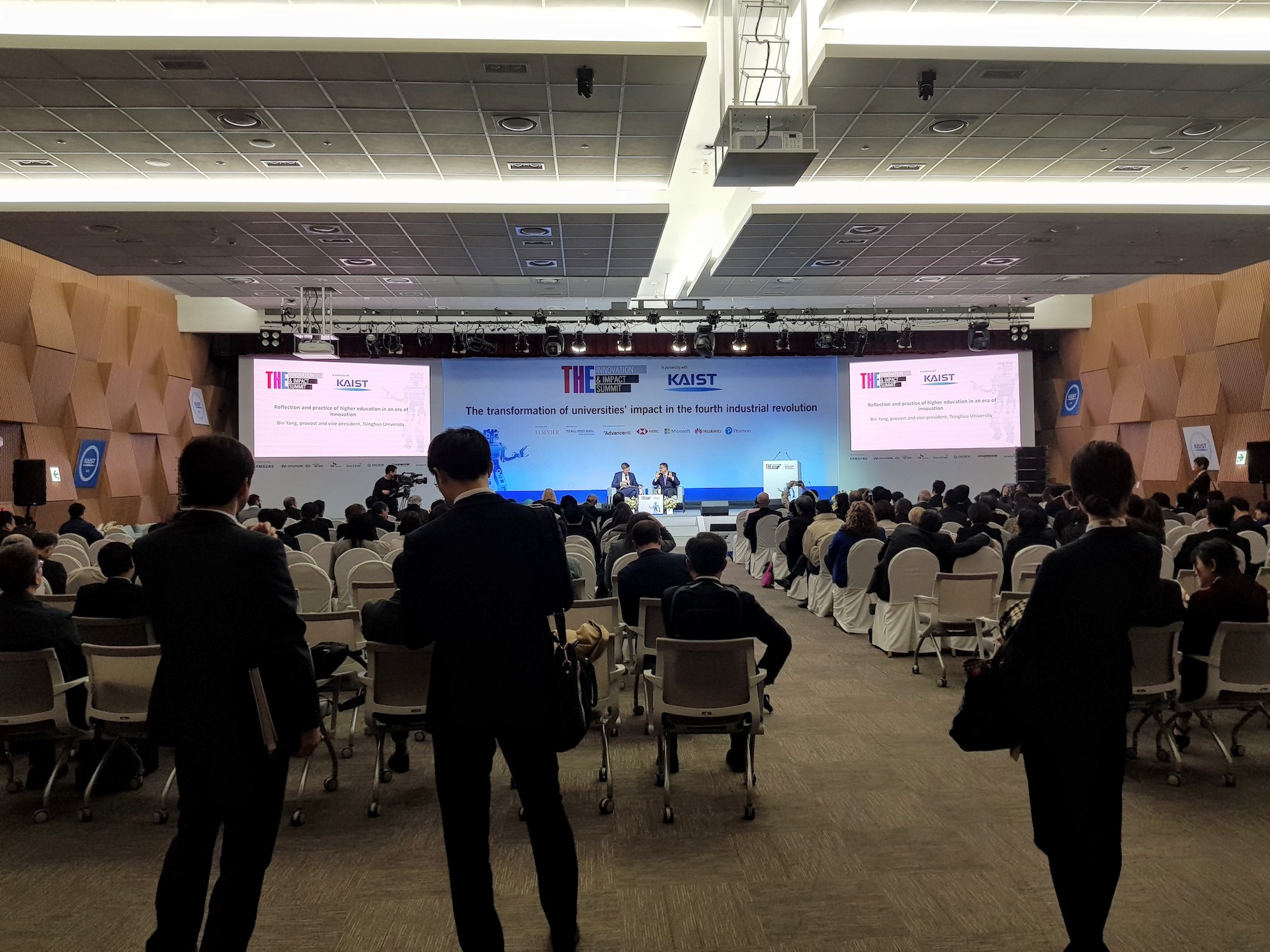
The 2019 Times Higher Education (THE) Innovation and Impact Summit was held in KAIST from April 2 to 4. As the campus’ cherry blossoms began to bloom, the Academic Cultural Complex (ACC) was inundated with international visitors. Delegates and speakers came to discuss the inextricable relationship between tertiary education and society. The summit was the second Innovation and Impact Summit run by THE and, according to KAIST President Sung-Chul Shin, the largest summit ever held by KAIST since the university’s founding in the 1970s.
THE organizes many university summit events within its World Summit Series, such as the Asia University Summit or the World Academic Summit. These are part of THE’s mission to “unite leaders of the best and most ambitious universities with world-class policy-makers, researchers and companies”. The Innovation and Impact series is unique because it is outward-looking and focuses on the relationships between universities and their surrounding society. This year’s event was especially significant because it marked the launch of THE’s Global University Impact Rating, a system that uses the United Nations Sustainable Development Goals (SDGs) to measure the impact that universities have on society. The new ranking system looks at how universities implement and budget policies that address the SDGs and stands in stark contrast to the introspective analysis of other THE systems.
The summit’s panels concentrated on the ways in which universities could adapt to a more digital and automated world. Addressing the Fourth Industrial Revolution was at the core of the event’s agenda. The Fourth Industrial Revolution is a term popularized by economist Klaus Schwab, referring to the fusion of digital systems as technology progresses. The phrase was constantly on the lips of speakers, with President Shin, Daejeon City Mayor Tae-jung Heo, and THE Chief Knowledge Officer Phil Baty mentioning it many times. Panels were separated into categories based on four subthemes: Innovation in Education, Knowledge Transfer and Entrepreneurship, the Culture of Artificial Intelligence, and the Triple Helix of Innovations (University, Industry, and Government). Panelists for each theme linked their arguments to the newly announced Global University Impact Rating and were often concerned with showing how universities could use their topic to have a positive impact on society.
The completion of the summit marked the end of months of planning and hard work by the International Scholar and Student Services (ISSS) staff and International Relations Team (IRT). When speaking with The KAIST Herald, Seokwon Choi, an IRT coordinator, described his life of “9 a.m. to 2 a.m. work days” in preparation for the event. Choi’s sentiments were mirrored by Kun Young Lee, the IRT coordinator in charge of student volunteers. Lee referred to the summit as “the culmination of all our hard work and late nights”, and during the event, she was constantly on the move, working hard to ensure the summit’s success.
Like Lee, staff and volunteers from Daejeon and the KAIST student community worked tirelessly throughout the event in many different roles. Some were responsible for storing attendees’ luggage, others ran tours of the KAIST campus, and some just helped connect attendees to KAIST’s wireless internet. When asked about his experiences, Dinmukhamed Mailibay, a student volunteer who was responsible for registering delegates and speakers, stated that “the first day was very hectic but we managed in the end. The [ISSS and IRT] staff were very helpful; they were very supportive”.
Many of the conference goers enjoyed the more dynamic and interactive parts of the event. In a discussion with Chilean delegates, they expressed how the use of workshops and panels made the event more interesting than “a standard series of speeches”. The delegates’ positivity was mirrored by the volunteers. According to Shubhranil Sengupta, a student working at the information booth, “[The summit] was very exciting. We [the volunteers] had to be always alert and ready to help”.
The KAIST Herald wishes to express its gratitude to the staff from THE, IRT, ISSS, and all the summit’s volunteers. They did a wonderful job organizing and operating the summit and we hope they enjoy a relaxing, post-summit break.

